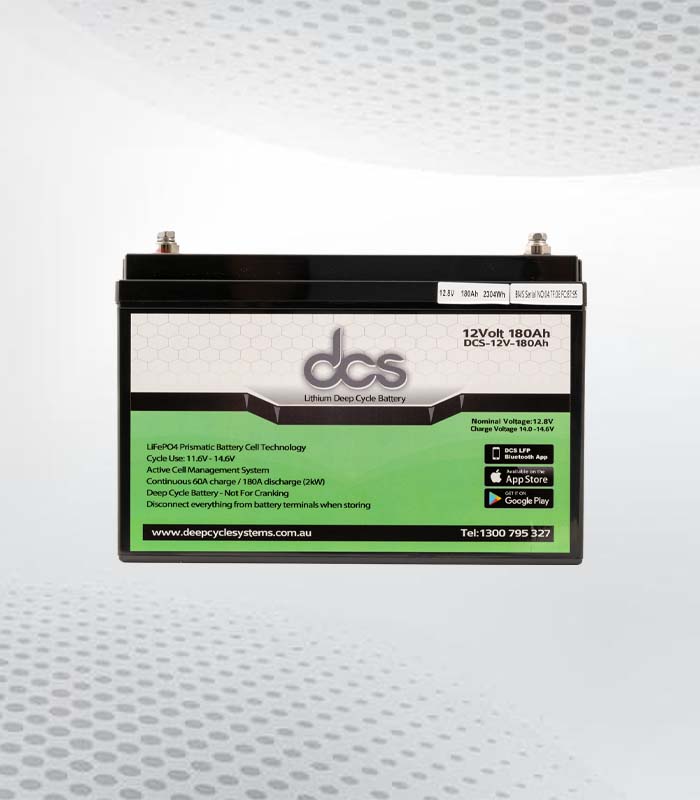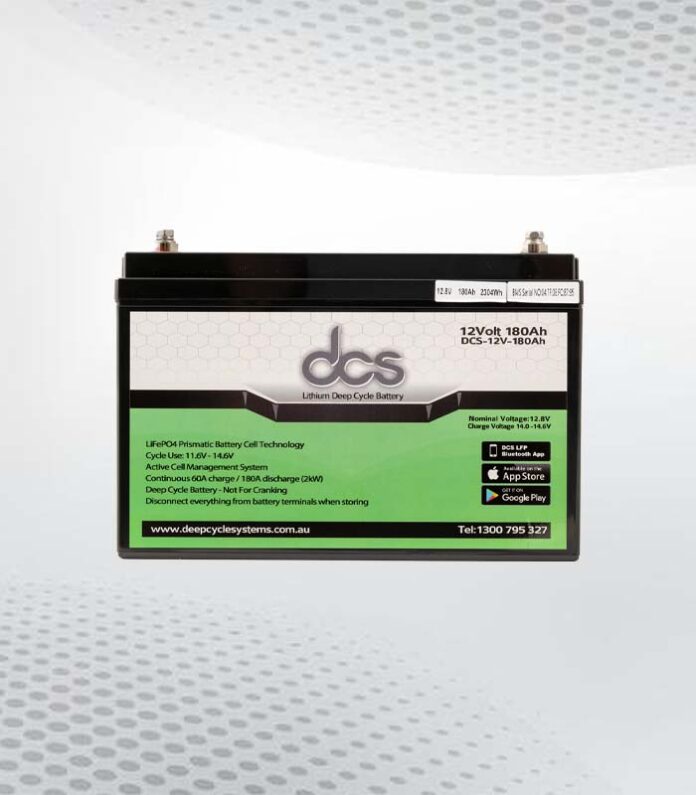As the world transitions towards cleaner and more sustainable energy sources, the demand for efficient and high-performing batteries has never been greater. One such battery has taken the market by storm is the 12V 200AH lithium battery. Its compact size, long lifespan, and ability to hold a charge for extended periods have made it a popular choice for various applications, from powering electric vehicles to storing solar energy. But what are the manufacturing secrets behind this powerful battery? This blog post will delve into the intricate process of creating a 12V 200AH lithium battery and uncover the secrets that make it a game-changer in the energy storage industry.
The Vital Components of a Lithium Battery 12v 200ah
Several vital components contribute to its exceptional performance when it comes to the inner workings of a Lithium Battery 12v 200ah.
- The first key component is the lithium-ion cells, which are the heart of the battery. These cells contain a positive electrode (cathode) and a negative electrode (anode), separated by a thin polymer electrolyte. The cathode typically consists of lithium iron phosphate (LiFePO4), which provides stability and longevity, while the anode is made of graphite or other carbon-based materials.
- Another essential component is the battery management system (BMS). This intelligent system monitors and regulates various parameters of the battery, such as temperature, voltage, and current, to ensure optimal performance and prevent damage. It also controls the charging and discharging processes, maximizing the battery’s efficiency and lifespan.
- Additionally, the 12V 200AH lithium battery includes a protective casing made of durable materials to safeguard the internal components from external elements and impacts. This casing also helps in efficient heat dissipation, maintaining the battery’s temperature within the optimal range.
The Advanced Manufacturing Process Behind 12V 200AH Lithium Batteries
The advanced manufacturing process behind 12V 200AH lithium batteries is a fascinating and intricate operation that requires precision and expertise. From start to finish, each step in the process is crucial to ensure the battery’s optimal performance and longevity.
The process begins with the assembly of the lithium-ion cells, which involves carefully layering the positive and negative electrodes and the polymer electrolyte separator. This step requires a controlled environment to prevent contamination and ensure the integrity of the cells.
Once the cells are assembled, they undergo a rigorous testing phase to check for defects or inconsistencies. This testing includes measuring each cell’s voltage, capacity, and internal resistance to ensure they meet the required specifications.
After testing, the cells are connected in series or parallel to achieve the desired voltage and capacity for the 12V 200AH lithium battery. This step requires precise wiring and connections to ensure optimal performance and safety.
The final stage of the manufacturing process involves sealing the battery and installing the battery management system (BMS). The BMS monitors and regulates the battery’s parameters, ensuring its safe operation and preventing damage.
Quality Control Measures for Ensuring High Performance
In the world of lithium batteries, ensuring high performance is crucial. To achieve this, rigorous quality control measures are implemented throughout the manufacturing process of 12V 200AH lithium batteries. These measures are in place to guarantee that each battery meets the highest performance and reliability standards.
One primary quality control measure involves thoroughly testing the lithium-ion cells. Each cell is tested for voltage, capacity, and internal resistance to meet the required specifications. This testing is crucial in identifying defects or inconsistencies affecting the battery’s overall performance.
Another key aspect of quality control is the monitoring and regulating the battery management system (BMS). The BMS is crucial in optimizing the battery’s performance and safety. It continuously monitors parameters such as temperature, voltage, and current to ensure they are within the acceptable range. Any deviations are immediately flagged, and appropriate actions are taken to prevent damage to the battery or its surroundings.
Furthermore, the manufacturing process itself undergoes rigorous quality control checks. This includes strict adherence to assembly procedures, precise wiring and connections, and the use of high-quality materials. These measures are in place to minimize potential manufacturing defects that may impact the battery’s performance.

Innovative Features and Capabilities of 12V 200AH Lithium Batteries
The 12V 200AH lithium battery is not just any ordinary battery; it is packed with innovative features and capabilities that set it apart from traditional lead-acid batteries. One of the most notable features is its compact size, allowing easy installation and integration into various applications. Despite its small form, it boasts an impressive energy storage capacity, making it ideal for powering electric vehicles, solar energy storage systems, and even off-grid applications.
Another remarkable feature of the 12V 200AH lithium battery is its ability to hold a charge for extended periods without significant power loss. This means you can rely on this battery to provide a consistent and reliable power supply, whether for your electric vehicle or your home energy storage system.
Furthermore, this battery is known for its long lifespan, surpassing traditional lead-acid batteries. With proper maintenance and care, the 12V 200AH lithium battery can last up to 10 years, saving you time and money in the long run.
This lithium battery is also highly efficient, providing more power and performance than lead-acid batteries. It offers a high charge-discharge efficiency, allowing for maximum stored energy utilization. This efficiency translates to improved overall system performance and reduced energy costs.
The Future of Lithium Battery Production: Exploring Potential Improvements and Developments
The future of lithium battery production holds exciting potential for improvements and developments that will further revolutionize the energy storage industry. As technology advances, manufacturers are exploring ways to enhance the performance, efficiency, and lifespan of 12V 200AH lithium batteries.
One area of focus is increasing the energy density of lithium-ion cells, allowing for even higher storage capacity within the same compact size. This would enable longer driving ranges for electric vehicles and greater storage capabilities for renewable energy systems. Researchers are also exploring using new materials, such as silicon anodes, which can potentially increase the battery’s energy density and charge-discharge efficiency.
Another area of development is improving the charging speed of lithium batteries. Rapid charging technology could significantly reduce charging times, making electric vehicles more convenient and accessible. This would require advancements in battery materials and designs to accommodate higher charging currents without compromising safety or lifespan.
Design Enhancements for 12V 200AH Lithium Batteries
Design enhancements are crucial in improving the performance and efficiency of 12V 200AH lithium batteries. Manufacturers are constantly exploring new ways to optimize the design of these batteries to meet the evolving needs of the energy storage industry.
One area of focus for design enhancements is reducing the weight and size of the battery. Manufacturers can create lighter and more compact batteries using advanced materials and engineering techniques without compromising capacity or performance. This makes the batteries easier to transport and install and opens up new possibilities for applications with limited space.
Another design enhancement being explored is improving the thermal management of the battery. Heat is a byproduct of the charging and discharging processes, and if not properly managed, it can affect the battery’s performance and lifespan. By incorporating innovative cooling systems and heat dissipation techniques, manufacturers can ensure that the battery operates within the optimal temperature range, maximizing its efficiency and longevity.
Additionally, advancements in the design of the battery casing can enhance its durability and resistance to external elements. A robust and protective casing not only safeguards the battery’s internal components but also ensures its safe operation in various environments.
Design enhancements also focus on increasing the ease of installation and integration of the battery into different systems. Manufacturers are working on creating standardized connectors and interfaces that simplify the process of connecting the battery to various applications. This makes it easier for customers to install and integrate the battery into their existing systems, saving time and effort.
Ensuring Safety and Compliance of 12V 200AH Lithium Batteries
Regarding energy storage, safety, and compliance are of utmost importance. This is particularly true for 12V 200AH lithium batteries, which are used in various applications, from electric vehicles to solar energy storage systems. To ensure the safety and compliance of these batteries, manufacturers adhere to stringent regulations and standards.
One key aspect of ensuring safety is using high-quality materials and components. Manufacturers carefully select fire-resistant and non-toxic materials to minimize the risk of accidents or harm. Additionally, the manufacturing process undergoes rigorous quality control checks to identify and eliminate potential hazards.
Compliance with industry regulations is also a top priority. Manufacturers ensure that their 12V 200AH lithium batteries meet the required safety standards, such as UL (Underwriters Laboratories) certification or IEC (International Electro technical Commission) standards. These certifications assure consumers that the batteries have undergone extensive testing and meet safety requirements.
To further ensure safety, manufacturers provide comprehensive user manuals and guidelines for properly handling and maintaining the batteries. These instructions outline the best installation, charging, and disposal practices, reducing the risk of accidents or damage.
FAQs
Do you have some burning questions about 12V 200AH lithium batteries? Don’t worry; we’ve got you covered! Here are some frequently asked questions to help you better understand these powerful energy storage solutions.
Q: Are 12V 200AH lithium batteries safe to use?
A: Absolutely! Manufacturers prioritize safety and compliance by using high-quality materials and adhering to industry regulations. These batteries are designed to be fire-resistant and non-toxic, minimizing the risk of accidents or harm.
Q: How long does a 12V 200AH lithium battery last?
A: With proper maintenance and care, these batteries can last up to 10 years, surpassing the lifespan of traditional lead-acid batteries. This longevity translates to significant time and cost savings in the long run.
Conclusion
In this blog post, we have delved into the intricate process of manufacturing a 12V 200AH lithium battery and uncovered the secrets that make it a game-changer in the energy storage industry. From the vital components, including the lithium-ion cells and the battery management system, to the advanced manufacturing process and rigorous quality control measures, we have explored the key elements that contribute to these batteries’ exceptional performance and reliability.
This Article Was First Published On
| Other Good Articles to Read |
| Skank Blogs |
| Unreal Blogs |
| Tba Blogs |
| All City Forums |
| Dany Blogs |
| Refuge Blogs |
| The Music Blogs |
| Key Forums |
| The Big Blog Theory |
| Joe Blogs |
| Blogs 4 Me |
| Blogs Emon |

